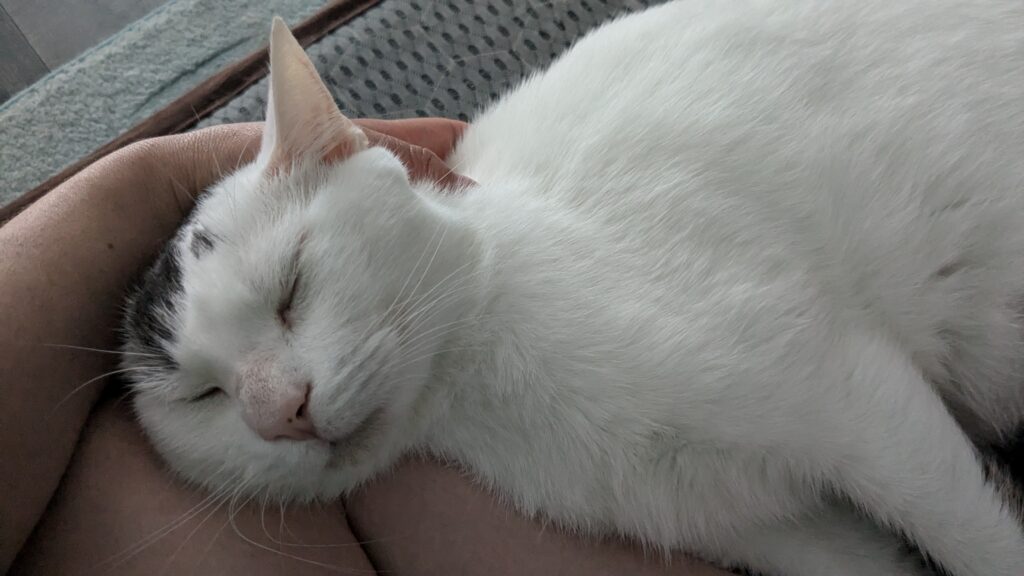If you’ve noticed eye discharge in your cat, there’s no need to panic! It’s a common issue with various causes. This guide will help you understand what might be happening and when to take action.

What Causes Eye Discharge in Cats?
Dust and Allergies: Just like us, cats can get dust or pollen in their eyes, causing irritation and watery discharge. This is usually temporary and clears up on its own.
Blocked Tear Ducts: Sometimes, a cat’s tear ducts can become blocked, leading to excessive tearing and discharge. This might happen due to an injury or infection.
Injuries or Scratches: Cats can get scratches or foreign objects in their eyes, which can cause irritation and discharge. If you suspect an injury, it’s best to seek veterinary care as soon as possible.
Conjunctivitis: Also known as pink eye, conjunctivitis can make your cat’s eyes red and produce a thicker, yellowish discharge. It’s often caused by bacterial or viral infections and may require treatment from your vet.
How Normal Is It?
Mild, Clear Discharge: A small amount of clear discharge that appears occasionally is usually nothing to worry about. It could be due to dust or just a little eye irritation.
Persistent or Colored Discharge: If your cat’s eye discharge is frequent, thick, or has a yellow or greenish color, it could indicate an infection. Watch out for other signs like redness, swelling, squinting, or pawing at the eyes, as these could indicate a more serious issue. In these cases, a visit to the vet is recommended to determine the cause and appropriate treatment.
How Can I Help My Cat?
Gentle Cleaning: Use a clean, damp cloth to gently wipe away any discharge from your cat’s eyes. Be careful not to touch the eyeball itself.
Keep Their Environment Clean: Regularly clean your cat’s bedding, food bowls, and litter box to reduce potential allergens and irritants.
Regular Vet Check-ups: Annual check-ups with your vet can help catch any eye issues early on.
In most cases, eye discharge in cats is not a cause for major concern. However, it’s always a good idea to monitor your cat’s symptoms closely and consult your vet if you have any doubts or if the discharge persists.

Leave a Reply